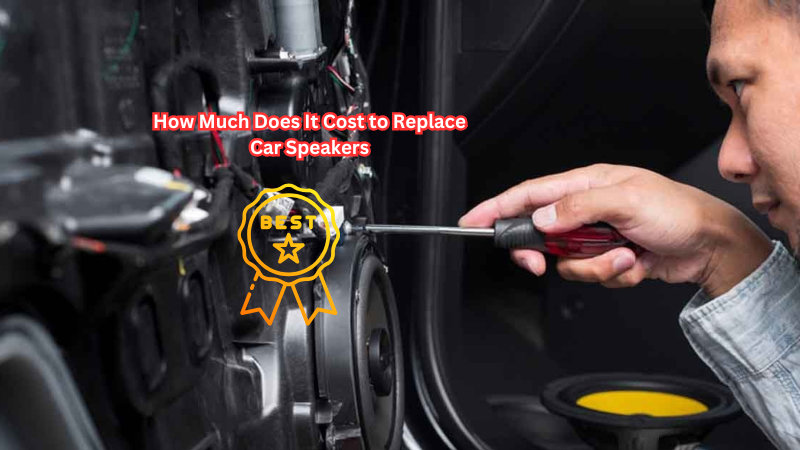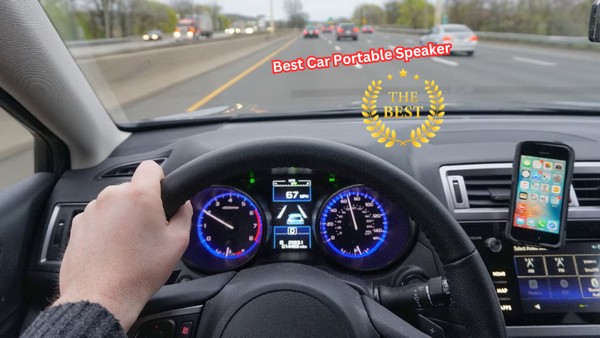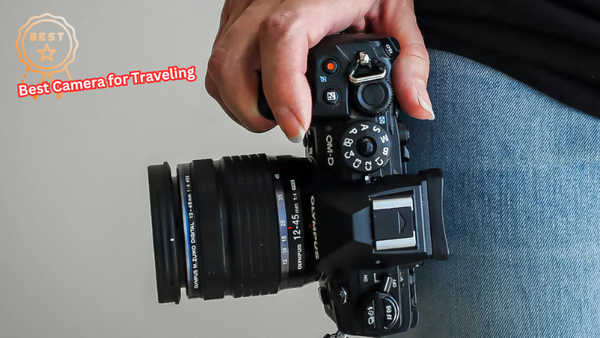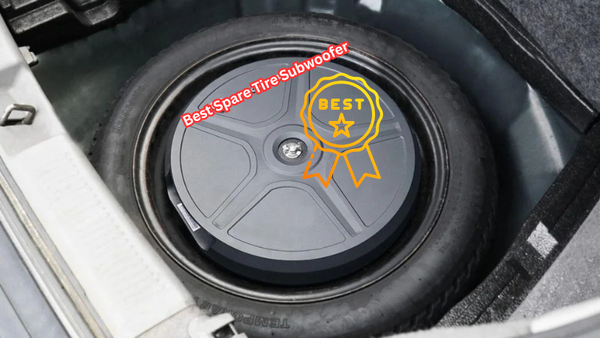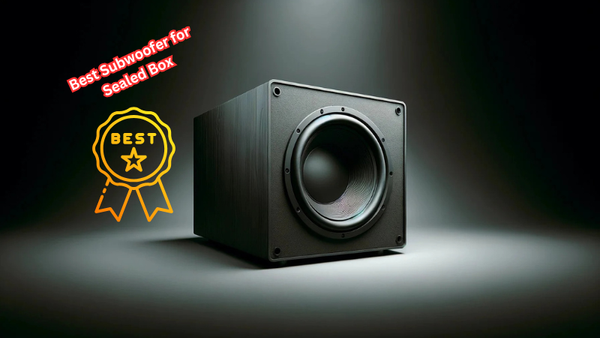Driving is often more enjoyable with a great soundtrack, making the quality of your car's audio system crucial. Whether cruising down the highway or stuck in traffic, high-quality speakers can significantly enhance your driving experience.
However, replacing car speakers involves several cost considerations that can vary widely. Factors such as the type of speakers, brand reputation, and whether you opt for a professional installation or a DIY approach can all influence the final cost.
This blog post will dive into these factors, helping you understand what to expect when replacing your car speakers. By considering your specific audio needs and budget, you can make an informed decision that enhances your ride and listening pleasure.
Importance of a Great Audio System
A car's audio system is an essential component of the driving experience. Having high-quality speakers allows you to enjoy your favorite music, audiobooks, or podcasts while on the road. It can also make phone calls and navigation easier by ensuring clear sound quality.
Additionally, good sound quality can even provide a safer driving experience. According to studies, listening to music while driving can improve concentration and alertness, reducing driver fatigue and potential accidents.
Overall, investing in a great audio system for your car can enhance both your enjoyment and safety while on the road.
Cost of Different Types of Speakers
The type of speakers you choose can have a significant impact on the overall cost of replacing car speakers. There are three main types of speakers: component, full-range, and coaxial.
Component speakers offer the most flexibility in terms of customization and sound quality but tend to be more expensive. On average, a set of component speakers can range from $100 to $600 or more.
Full-range speakers are often considered a budget-friendly option as they come with all the necessary components (woofer, tweeter, and midrange) in one unit. The price for full-range speakers typically ranges from $30 to $200 per pair.
Coaxial speakers fall between component and full-range speakers in terms of price and sound quality. They are often a popular choice for those looking for a balance between affordability and audio performance. The average cost for coaxial speakers can range from $50 to $250 per pair.
Additionally, the brand reputation and features such as power handling, frequency response, and sensitivity can also impact the cost of car speakers. It's essential to do thorough research and consider your specific needs when choosing the type of speakers that fit your budget.
How Much Does It Cost to Replace Car Speakers?
The cost of replacing car speakers can vary greatly depending on the factors mentioned above. On average, a complete speaker replacement for a standard four-door sedan can range from $200 to $800 or more. This price includes both the cost of the speakers and installation fees if you choose to have them professionally installed.
While opting for professional installation may seem like an additional expense, it can ensure proper wiring and placement of the speakers, maximizing their performance and longevity. It also saves you time and potential frustration that comes with a DIY approach.
However, for those with knowledge and experience in car audio systems, choosing to install the speakers yourself can significantly reduce costs. Just be sure to research proper installation techniques and take caution to avoid damaging your vehicle's interior.
Factors Affecting the Cost of Car Speaker Replacement
Now that we've discussed the cost breakdown of car speaker replacement, let's dive into some additional factors that can impact the overall cost.
Professional Installation
As mentioned earlier, opting for professional installation can add to the total cost of replacing your car speakers. The fees for professional installation can range from $50 to $200 or more, depending on where you live and which audio shop you choose.
However, this cost may be worth it for those with little knowledge or experience in car audio systems as it ensures proper and efficient installation. It also often comes with a warranty or guarantee from the installer, providing peace of mind for any potential issues down the road.
Amplifiers and Other Accessories
Some cars may require additional components such as amplifiers, crossovers, or bass blockers to replace the speakers. These accessories can range from $20 to $200 or more depending on their quality and brand.
If your car already has an amplifier installed, make sure it is compatible with the new speakers before purchasing them. Otherwise, you may need to invest in a new amplifier along with the speakers.
Difficulty of Installation
The complexity of replacing car speakers can also affect the overall cost. Some vehicles are easier to work on than others, and certain models may require additional labor and time for proper installation. This can result in higher fees for professional installation or added time and effort if you choose a DIY approach.
Additionally, if any parts of the vehicle need to be removed or disassembled for installation, it may also add to the cost. Thus, it's essential to consider these factors when determining the overall cost of replacing car speakers.
Quality and Brand Reputation
Another factor that can influence the cost is the quality and brand reputation of the speakers you choose.
More well-known and reputable brands often come with a higher price tag due to their popularity and perceived superior performance. Additionally, high-quality materials, construction, and sound technology can also contribute to a higher cost for speakers.
However, it's important to note that just because a speaker is more expensive does not necessarily mean it is of higher quality. It's always essential to do thorough research and read reviews from other customers before making a decision.
Warranty and Guarantee
Some speaker brands may offer warranties or guarantees for their products, which can also impact the cost. Warranties typically cover defects or issues with the speakers within a certain period after purchase, while guarantees often provide a money-back guarantee if you are not satisfied with the product's performance.
These added benefits may come at an additional cost but can provide peace of mind and potential savings in case of any issues with the speakers.
These are just some of the factors that can affect the overall cost of replacing car speakers. It's crucial to consider these factors and do thorough research before making a purchase, as it can save you money in the long run and ensure you get the best value for your budget.
Additional Costs to Consider
In addition to the cost of the speakers themselves, there may be some additional expenses to consider when replacing car speakers. These can include:
- Wiring and Harnesses: If your vehicle's wiring or harnesses need to be replaced or upgraded for the new speakers, it can add an extra $50 to $100 or more to the total cost.
- Soundproofing Materials: To improve sound quality and minimize external noise, you may want to invest in soundproofing materials such as insulation foam or sound-deadening mats. These can range from $10 to $200 depending on how much coverage is needed.
- Installation Tools: For those choosing a DIY installation approach, investing in proper tools such as wire cutters, crimpers, and panel removal tools may be necessary. These can add an extra $50 to $100 or more to the total cost.
Cost-Saving Tips for Replacing Car Speakers
Replacing car speakers can be a significant expense, but there are ways to save money without sacrificing quality. Here are some cost-saving tips to consider:
- Do your research: Before making a purchase, spend some time researching different speaker brands and models. Look for reviews from other customers and compare prices from different retailers to find the best value for your budget.
- Choose mid-range or budget-friendly options: While well-known and reputable brands may offer higher quality speakers, many mid-range or budget-friendly options can also provide excellent sound quality at a lower cost. Don't shy away from lesser-known brands if they have positive reviews and meet your needs.
- Consider refurbished or gently used speakers: If you're open to purchasing refurbished or gently used speakers, you may be able to save a significant amount of money. Just make sure to buy from a reputable seller and thoroughly inspect the product before making a purchase.
- Compare installation prices: If you're opting for professional installation, don't be afraid to shop around and compare prices from different audio shops. You may find that some offer lower fees or promotions that can help reduce the overall cost.
- DIY installation: While it may not be suitable for everyone, opting for a DIY approach can save money on professional installation fees. However, make sure you have the necessary knowledge and tools before attempting this option.
By considering these tips and doing thorough research, you can save money while still getting high-quality speakers for your car.
FAQs
Is it necessary to replace all car speakers at once?
No, it is not necessary to replace all of your car's speakers at once. You can choose to replace them one at a time if you are on a budget or want to gradually upgrade your audio system. However, replacing all of the speakers at the same time can provide a more balanced and consistent sound throughout your vehicle.
Is it expensive to fix a blown speaker in a car?
Cost to fix a blown car speaker: $50-$300 (replacement speaker) to $500-$1,000 (amplifier or entire sound system replacement), depending on complexity and quality.
Does the make and model of my car affect the cost of replacing speakers?
Yes, the make and model of your car can influence the cost of replacing speakers. Certain vehicles, especially luxury or high-end models, may require custom-fit speakers or additional adapters, which can increase both the cost and installation complexity.
Conclusion
In conclusion, replacing car speakers involves several key considerations that can influence the overall cost and quality of your audio upgrade.
It's essential to assess the type of speakers—whether component, full-range, or coaxial—while factoring in brand reputation and any necessary accessories like amplifiers.
Installation choices also play a significant role; opting for professional help can ensure optimal performance but may increase costs, whereas a DIY approach can save money if you're equipped with the skills and tools.
Additional expenses such as wiring upgrades and soundproofing materials should also be considered. By conducting thorough research and weighing your specific audio needs against your budget, you can make an informed decision that enhances your driving experience without breaking the bank.
